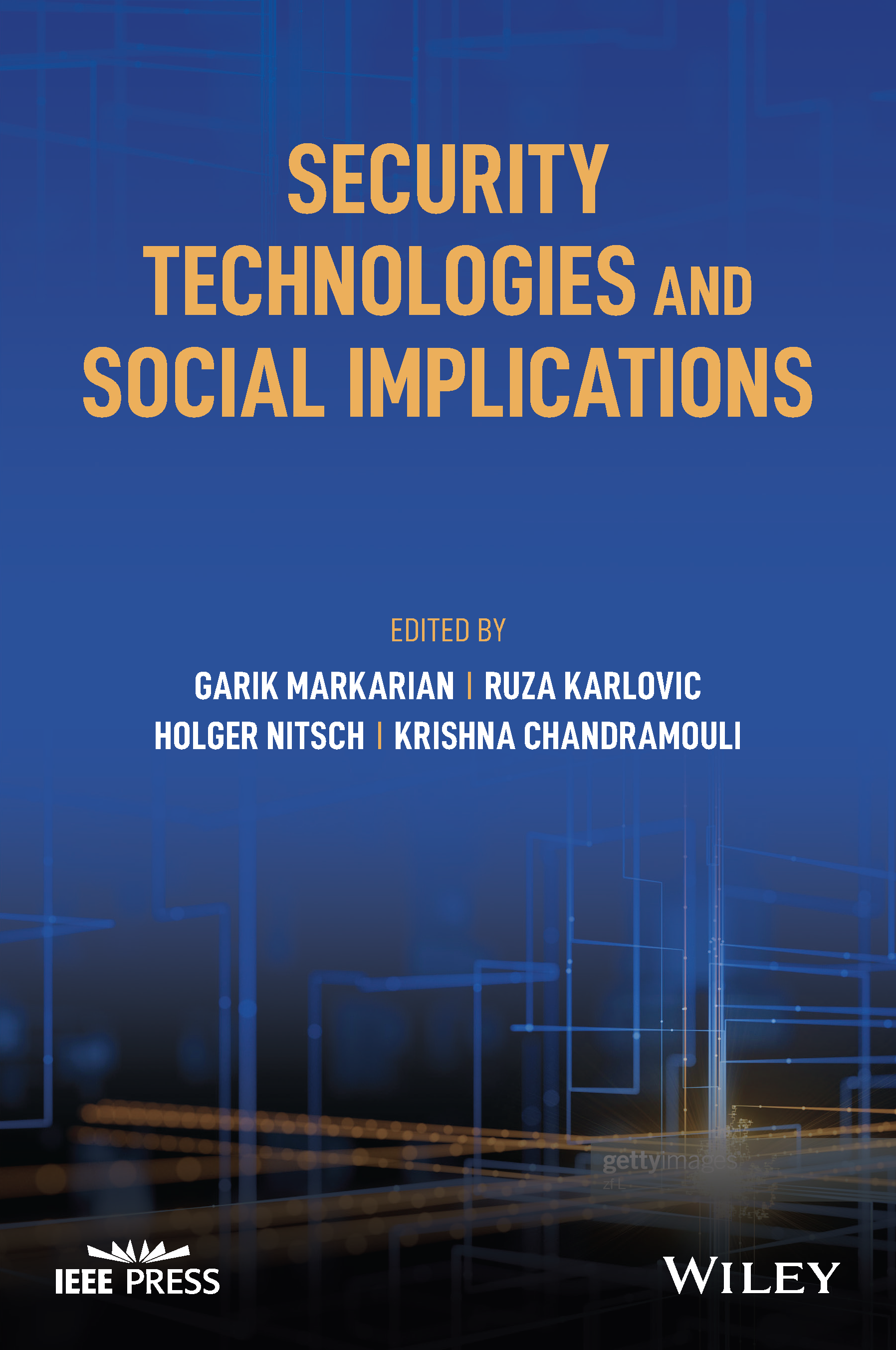
1st NOTIONES Conference: Emerging Technologies for Law Enforcement and Intelligence Services
How can the existing and emerging technologies enhance or hamper the activities of European intelligence and law enforcement agencies
Date: June 15th, 2022 / 9-17 CET
Location: Stanhope Hotel, Brussels
Registration: by June 2nd
Abstract:
The goal of the NOTIONES conference is to deepen the understanding of existing and emerging technologies in the fields of intelligence and law enforcement. We invite practitioners, policy makers, academia and industry in the fields of intelligence and security to join us it the conference. The program will include a keynote speech, presentations about the NOTIONES project, and a panel discussion. During the conference, the participants can also engage in sessions and workshops.

Tarja Laakkonen
Laurea University of Applied Sciences
tarja.a.laakkonen[at]laurea.fi

Tarja Laakkonen
Laurea University of Applied Sciences
tarja.a.laakkonen[at]laurea.fi

Tarja Laakkonen
Laurea University of Applied Sciences
tarja.a.laakkonen[at]laurea.fi
08:30 – 09:00
Registration and welcome coffee
09:00 – 09:45
Welcome to conference & Presentation on NOTIONES project
09:45 – 10:15
10:15 – 11:00
11:00 – 11:30
Coffee break
11:30 – 12:15
Parallel session round 1
12:15 – 13:30
Lunch
13:30 – 14:15
Parallel session round 2
14:15 – 14:45
Coffee Break
14:45 – 15:30
Working groups
15:30 – 15:45
Small Break
15:45 – 16:45
Summary and conclusions of the conference
16:45 – 17:00
Closing the conference
17:00 – 19:00
Social dinner and get-together
Keynote Speaker:
Prof Garik Markarian is Emeritus Professor at Lancaster University, UK and the CEO and Founder of Rinicom Ltd. Prior to joining Lancaster University, he spent over ten years in wireless broadband industry, working in senior executive positions for the UK, USA and Canadian technology Companies. He is one of the founding members of the IEEE802.16 standard, where he chaired a number of working groups and actively contributed to the EUROCAE WG-82 (AeroMAX), EUROCAE WG-72 and WG-115 standards.
Current research interests include Aviation Security, Secure Communication Systems and Artificial Intelligence for Security Applications. He has co-authored over 700 publications, including 42 patents and 5 text books (including “Aviation Security Engineering: A Holistic Approach” and “Counter-UAV Handbook” both with ARTECH House). He is a Fellow of the National Academy of Sciences in Armenia and for long time served as the Chair of the IET Professional Panel in Communications. Under his management Rinicom grew up to become one of the world leading technology companies supplying its products to first responders and security agencies around the world. In recognition of these achievements, Rinicom was awarded Queens Awards for Excellence in Business in 2013 and 2018.
Co-presenters:
Prof. Holger Nitsch – the head of the social science department for the University of Applied Sciences for Public Affairs in Bavaria – Department for Policing.
Prof. Ruza Karlovic – Vide Dean for Research, Police University College, Zagreb, Croatia.
Dr. Krishna Chandramouli – Lecturer, Queen Mary University, London, UK.
Keynote
This presentation will be based on the book “Emerging Technologies for Law Enforcement and Intelligent Services and Associated Social Implications” by G.Markarian, R.Karlovic, H.Nitsch and K.Chandramouli, which is scheduled to be published in Q3 2022 by IEEE Press and Wiley.
Title: “Emerging Technologies for Law Enforcement and Intelligent Services and Associated Social Implications”
Authors: G.Markarian, R.Karlovic, H.Nitsch, K.Chandramouli
Emerging Technologies for Law Enforcement and Intelligent Services and Associated Social Implications
Advancements in scientific technologies have resulted in the need for adopting Law Enforcement Agencies (LEAs) capabilities as the development of new technologies encourages the development of the phenomenology of criminal offenses in the digital era. In contrast to the classic police tools (such as gun and/or handcuffs) the new approach relies on the emergence of new tools such as mobile devices, Artificial Intelligence, Machine Learning, social media, drones, robots, GIS, just to name a few. As crime in general and cybercrime in particular are becoming more and more sophisticated, it requires a complex mix of both technological and social measures which include prevention, detection, investigation and prosecution. Effective solution to this problem requires continuous synergy and innovation from different scientific fields and their incorporation into the day-to-day practice of LEAs.
Although significant progress has been achieved in developing innovative technologies, incorporation of such technologies into decision making by LEAs is still slow due to several both objective and subjective reasons. In this presentation we will focus on development and application of new technologies that police officers could leverage as a tool for both predictive and intelligence-led investigations and recommends the best practice for incorporation of these technologies into day-to-day activities by LEAs.




